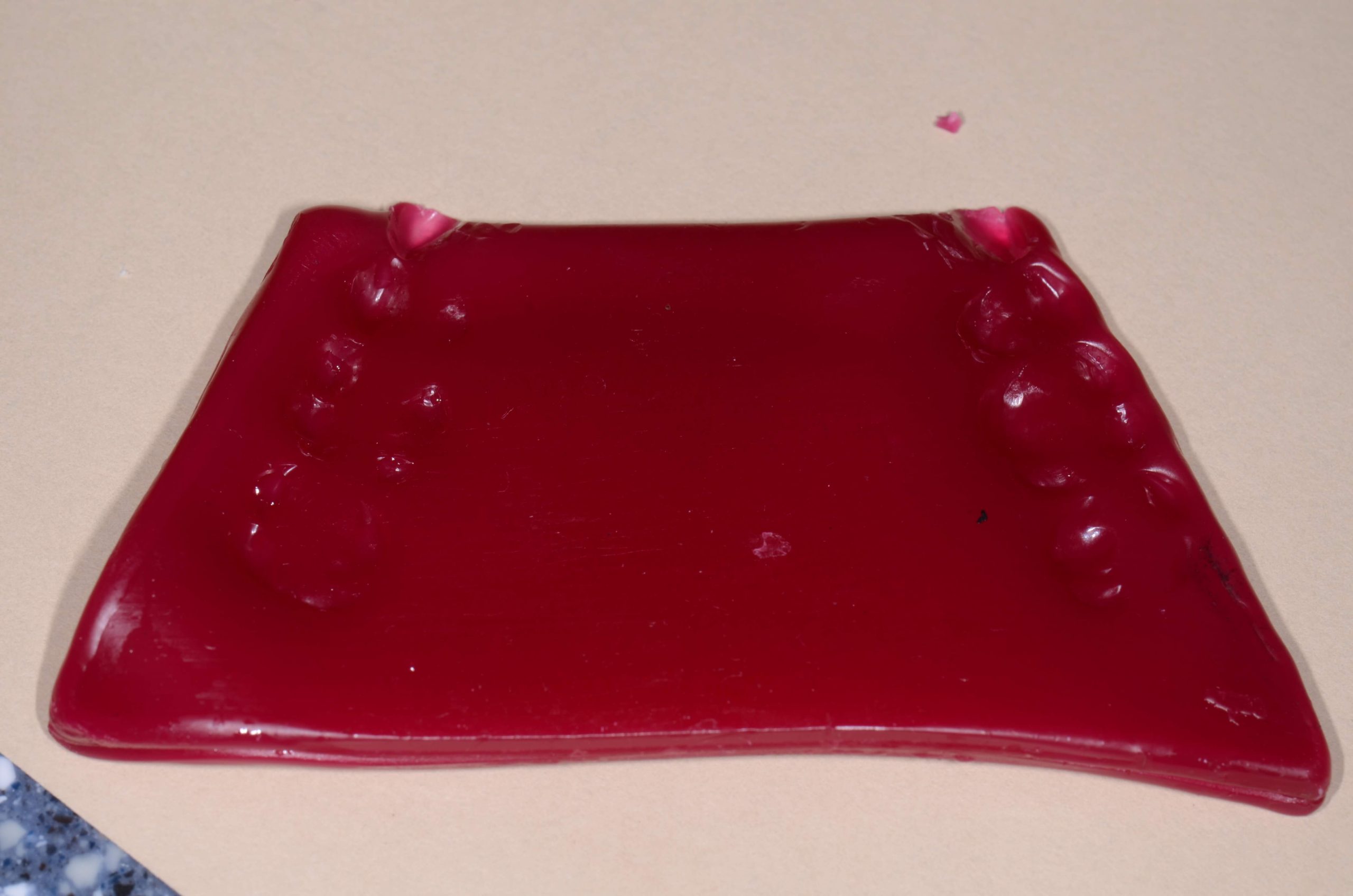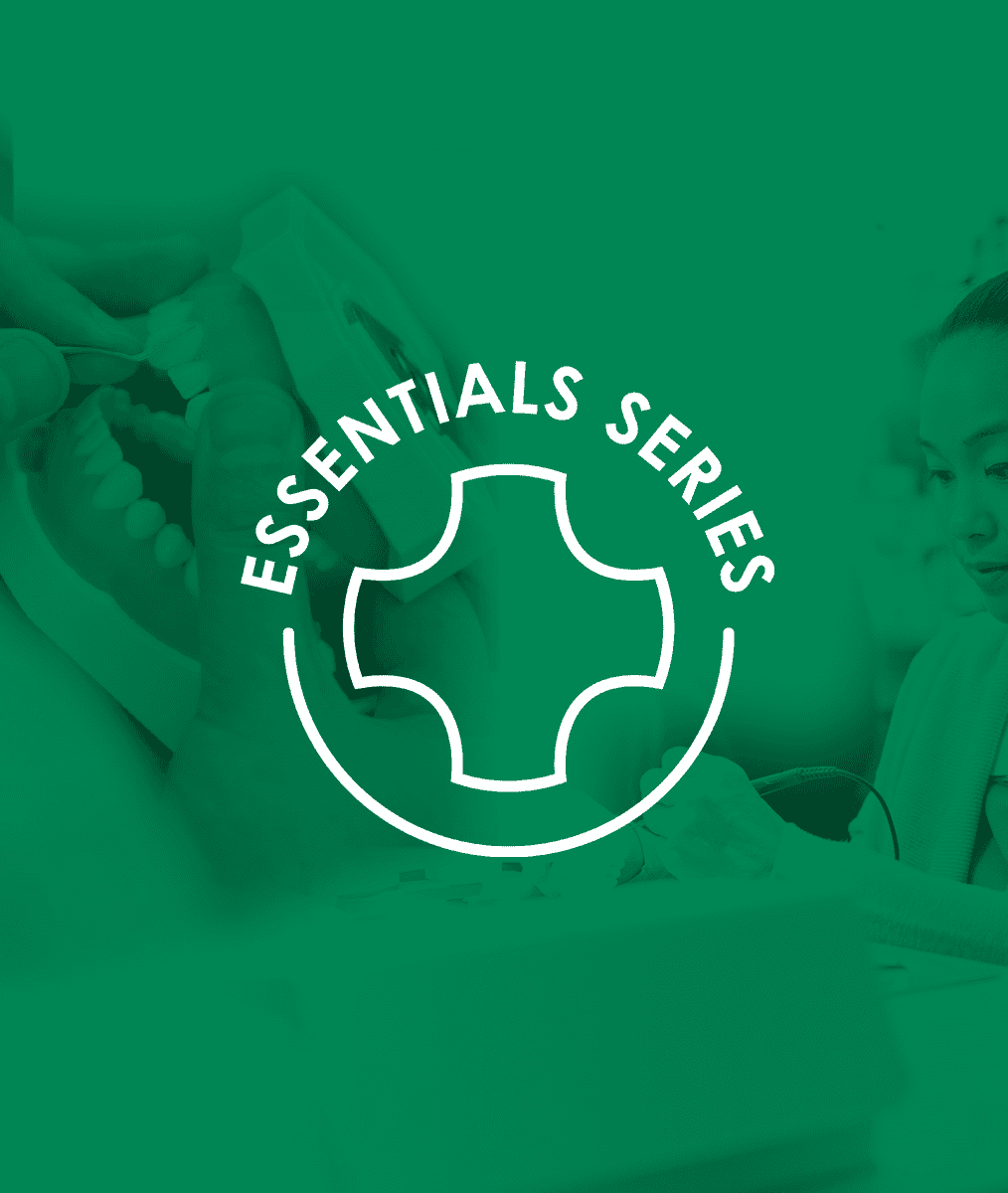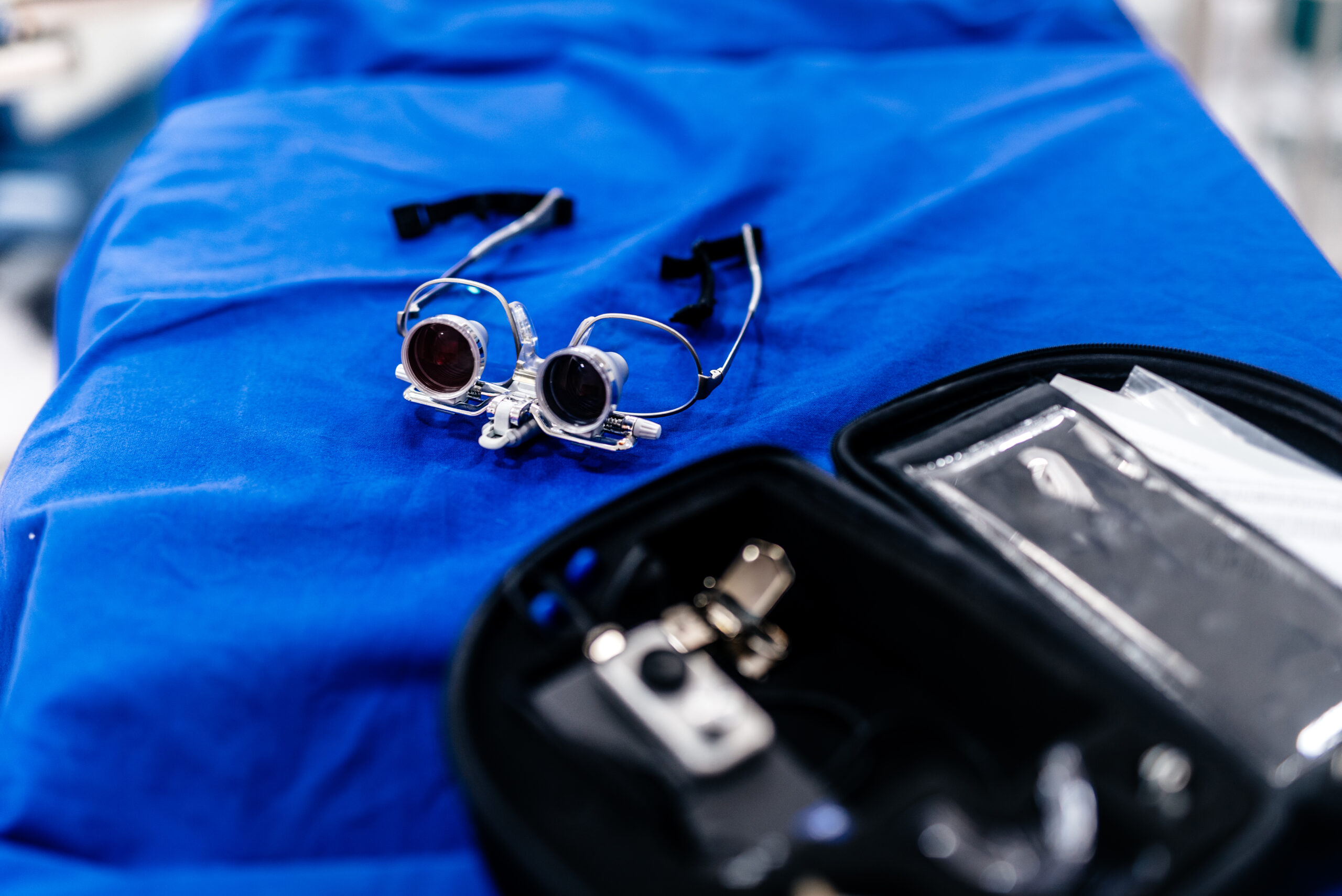
Master Wax Centric Relation Bite Record 1
Analyzing a patient’s occlusion is key to providing optimal care. There are multiple ways to take a centric relation bite record, but one of the classics at Pankey has to be utilizing master wax. Easily mounting models in the laboratory is one of the main advantages of this method.
Although a slightly more challenging technique from a chairside perspective, it can still be accomplished with ease. Here is where to start:
Intro to the Master Wax Centric Relation Bite Record
Begin by gathering your necessary tools and materials. Start with a red master wax that looks just like baseplate wax from a standpoint of the size of the wax sheets, although it is different because it’s both softer and tackier. You will also need a blue wax pencil, scissors to cut the wax, a heat source such as an alcohol torch, and a way to light the heat source.
Take a single sheet of wax and temper it in the middle with the intention of being able to bend it in half. Once it is thoroughly tempered, bend it in half without cracking or breaking the wax. Make sure the bend is fairly crisp. After the wax has cooled a little bit, open it back up and cut it in half. Out of every sheet of wax, you should be able to generate two platforms for wax records.
Once again temper the wax halfway in the middle with the heat source. Tempering refers to heating to flexibility but not dripping. Again, fold the wax in half so you have a double thickness sheet. Then, cut the wax into the shape of the platform …
Look for the second part in this series about our master wax technique coming soon. And did you get a chance to read this Pankey Gram blog on enjoying Miami while you visit Pankey? Let us know what you think!
Related Course
E4: Posterior Reconstruction and Completing the Comprehensive Treatment Sequence
DATE: April 23 2026 @ 8:00 am - April 27 2026 @ 2:30 pmLocation: The Pankey Institute
CE HOURS: 44
Dentist Tuition: $ 7500
Single Occupancy with Ensuite Private Bath (per night): $ 355
The purpose of this course is to help you develop mastery with complex cases involving advanced restorative procedures, precise sequencing and interdisciplinary coordination. Building on the learning in Essentials Three…
Learn More>






